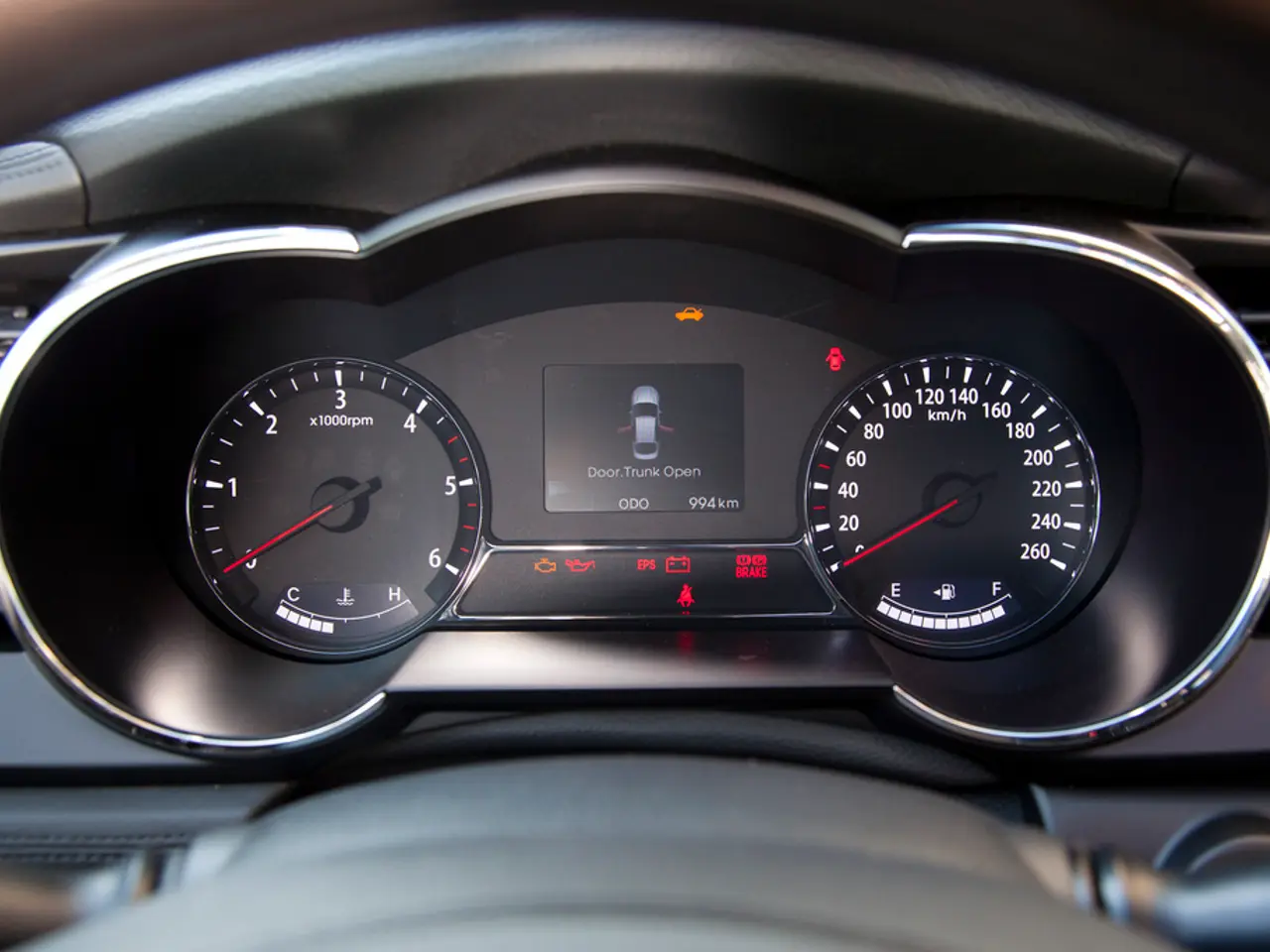Reliability of Fuel Consumption Trackers: An Investigation
In the ever-evolving world of automotive technology, real-time miles per gallon (MPG) feedback systems are making waves by providing drivers with immediate information about their fuel consumption, significantly impacting gas mileage and driving behavior.
## Mechanisms for Improving Gas Mileage
These innovative systems offer drivers real-time alerts or visible metrics, such as current MPG, throttle input, and alerts for harsh braking or idling, directly on the dashboard or through in-cab systems. This instantaneous feedback empowers drivers to adjust their habits on the fly, leading to gentler acceleration, maintaining optimal speeds, and other fuel-efficient practices, which can boost fuel efficiency by 10–25%.
Moreover, many systems include coaching features, like alerts for excessive idling, speeding, or sudden drops in MPG, encouraging more fuel-efficient maneuvers. Over time, these nudges can lead to lasting behavioral changes and further improvements in gas mileage.
Advanced systems also automate reporting and benchmarking, allowing drivers and fleet managers to compare performance across vehicles and routes. This data-driven approach helps identify inefficiencies and incentivize best practices.
## Effects on Driver Behavior
The tangible nature of real-time feedback makes fuel consumption more apparent to drivers, prompting them to be more mindful of their driving patterns. Metrics such as gas pedal pressure and speed guidance are frequently cited as the most useful for influencing behavior.
Studies in both passenger and commercial vehicles show that drivers who receive continuous feedback tend to adopt smoother acceleration, reduce idling, and maintain more consistent speeds—all of which contribute to better fuel economy.
Customizable user interfaces enhance the effectiveness of MPG systems by tailoring feedback to individual driver preferences, further enhancing engagement. In commercial settings, feedback is often paired with incentive programs, such as point-based rewards for efficient driving, which further motivate behavioral change and boost overall fleet efficiency.
## Summary
In summary, real-time MPG feedback systems help drivers reduce fuel consumption by making them more aware of their driving habits and encouraging more efficient behaviors, with measurable improvements in both immediate and long-term fuel economy. The table below provides a summary of the key features, their impact on gas mileage, and effects on driver behavior:
| Feature | Impact on Gas Mileage | Effect on Driver Behavior | |----------------------------------|---------------------------------|-----------------------------------| | Real-time MPG display | Immediate feedback → efficiency | Increased mindfulness | | Eco-coaching/alerts | Reduces wasteful habits | Encourages smoother driving | | Benchmarking/reporting | Identifies inefficiencies | Drives continuous improvement | | Customizable feedback | Tailors to driver preferences | Enhances engagement | | Incentive programs | Sustains behavioral change | Motivates fuel-efficient habits |
As the focus on gas mileage intensifies due to rising fuel prices and concerns about environmental impact, real-time energy monitors are poised to play a crucial role in helping drivers optimize their fuel consumption and reduce their carbon footprint.
In the realm of technology, real-time MPG feedback systems extend beyond the automotive sector, finding application in the electronics industry as well. For instance, electronic gadgets could potentially integrate similar technology to display energy consumption in real-time, allowing users to make more conscious decisions and conserve battery life.
Moreover, the data-and-cloud-computing sector can leverage real-time feedback systems to optimize resource utilization and energy efficiency. By analyzing patterns in usage and offering continual insights, these systems could encourage more energy-efficient practices among users, contributing to overall reductions in environmental impact.
Furthermore, as technology advances, it's plausible that the integration of real-time feedback systems could become a common feature across various industries, driving not only efficiency but also fostering a cultural shift towards conservation of resources, be it fuel, energy, or money.




